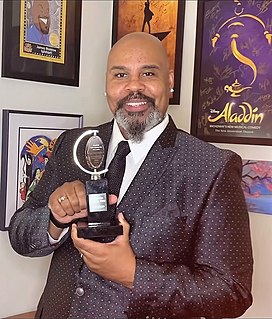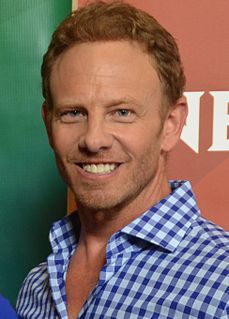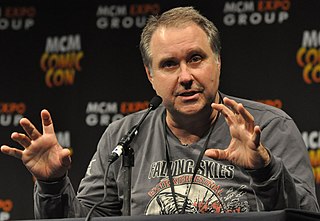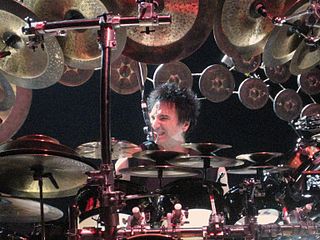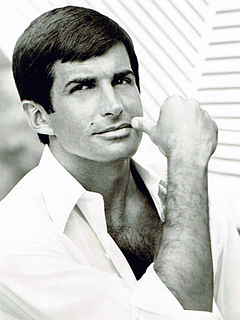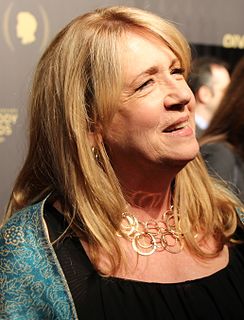A Quote by Timothy Hutton
I remember, when we started 'Leverage,' we were all in Chicago, and I read the script for the pilot and thought, 'Boy, this is just a real interesting place to begin a character.' I had to figure out how to go about playing someone who had hit rock bottom.
Related Quotes
I remember working with Jackie Chan on Shanghai Noon [2000], and when we were working on the script, I thought that my character thought about being an outlaw the way a kid today would think about being a rock star, as a way to impress girls. So it was just kind of a funny idea, but once we had that idea, it changed the character and made it something that was funnier to me to play.
I had to audition for Fandango. When I read the script, the role that was interesting - so everyone thought - was the role that Costner played. He was the cool guy. And I read the script, and my representation at the time said, "That's the role you should read for." And I was like, "Really? How about I read for this other role." And they went, "Well, you're not going to get that role."
I remembered getting the script for the auditions [of Aladdin], I had asked someone there if improvs were allowed, and he said everyone is sticking to the script. I said to myself that they are either going to love me or hate me. I was crossing out lines and throwing in my own lines. I went into the room and started doing things. They were like, "This boy is nuts! We should keep him." That's how it all came about.
I just couldn't believe that it [Into the Forest script] had fallen into my lap, because I felt so incredibly connected to my character, and I understood her, and I really...I haven't had that feeling about a script since I had read Thirteen or The Wrestler when I was just like, "No one else can do this." I just feel so passionate about it.
When I read the script for '90210,' I thought, 'Boy, this is very superficial,' and it was. I mean, the pilot was all about the glitz and the glamour of Beverly Hills, the obnoxious kids, and the fish-out-of-water story of Brenda and Brandon Walsh. I couldn't discern from that first script that the show would become very issue-oriented.
Suddenly, I realized how tough trying to structure a story like this is. It was a lot of work. The one big advantage that we had was that we had eight scripts written before we started shooting, or even started casting. We had a really good opportunity to look at it and figure out where we were going to go and how to do it. Once we got a cast, which I love, then we started doing some revisions to make sure that they fit into it.
I had been composing just for myself, and people would say I played so orchestrally, and wondered if I thought about having someone write a piece for me for an orchestra. And I thought, I don't want someone else to write that. You know I finally had made an overhead chart of my drums and what pitches the cymbals and toms were tuned to, and what have you. And I started to compose just with what I had for my solo drumming.
We had to get out of Chicago so quick. Election night happens, suddenly I'm talking to Ben Bernanke and Hank Paulson and trying to figure out whether the world's going to fly apart, and Michelle is trying to figure out where the girls are going to go to school. And we pack up and leave and basically our house in Chicago just became like a time capsule. My desk in my home office still had stacks of articles and bills and stuff from 2008.
Bruno opened his eyes in wonder at the things he saw. In his imagination he had tough that all the huts were full of happy families, some of whom sat outside on rocking chairs in the evening and told stories about how things were so much better when they were children and they'd had nowadays. He thought that all the boys and girls who lived there would be in different groups, playing tennis or football, skipping and drawing out squares for hopscotch on the ground. As it turned out, all the things he thought might be there-wern't.'' -The boy in the striped Pajamas
At MGM there was a script cage in the basement where they’d show rushes. And I thought to myself, “How do I get into the script cage and find out what my future is?” I climbed into the script cage one night and spent the whole night in there. I saw the bowels of MGM. I saw the studio scripts that the producers had seen; the writers had just handed them in. And I started thinking this is a chance to pick my own roles.
In actor's career, I had a fair amount of denial, which I think is possibly in the genes, where I just couldn't go to, "Maybe this won't work out." I just couldn't do it. My mind just refused to go there. I don't mean there weren't low periods. There were plenty. But I remember arriving in New York and I was maybe 32, and I didn't have an agent. I came from Chicago, where I had gone to school and worked and got my sea legs, so to speak, and I remember walking out of the subway, walking the streets, standing in front of the theater and saying, "I will work in this theater."
I just thought that was so interesting, that people that deal with bodies on a much more corporeal level, like the attendants, had a whole different set of criteria than doctors, and that they had this secret knowledge of something. I thought it was strange and interesting, so I took it to my script.
I just started trying to figure out how to write [something] which was unlike anything anybody had ever seen, and once I felt like I had figured that out I tried to figure out what kind of book I could write that would be unlike anything anybody had ever seen. When I started writing A Million Little Pieces I felt like it was the right story with the style I had been looking for, and I just kept going.



